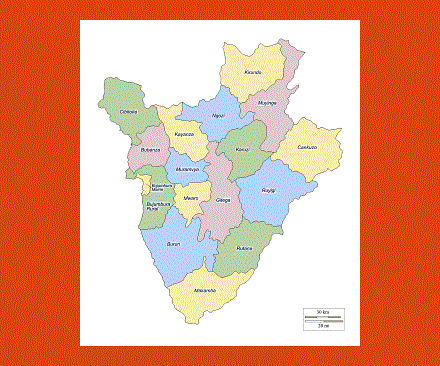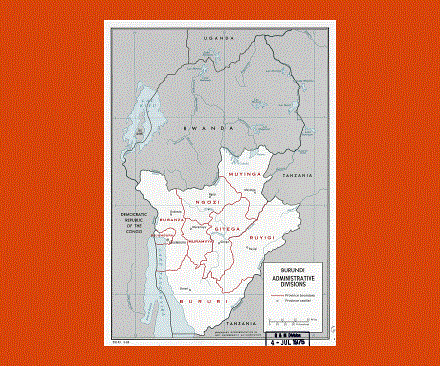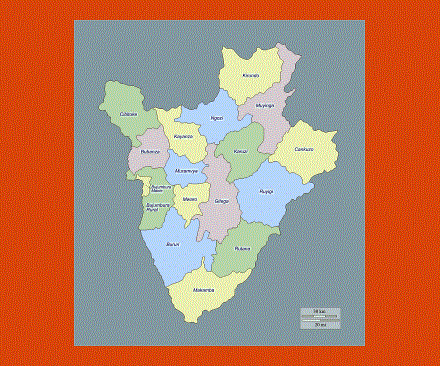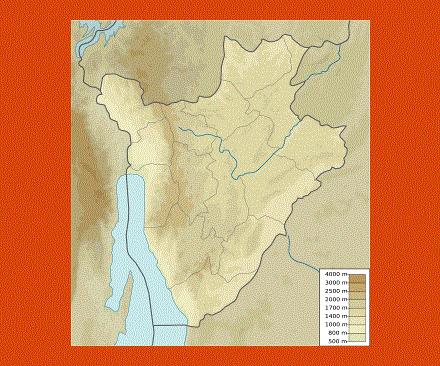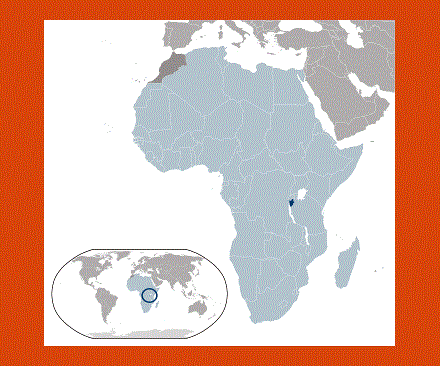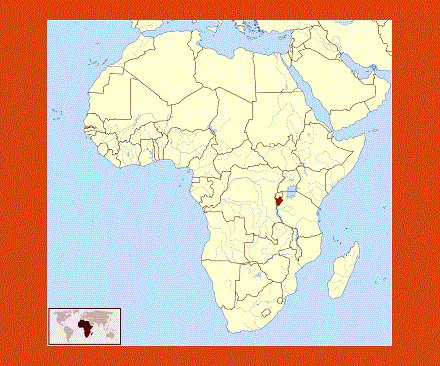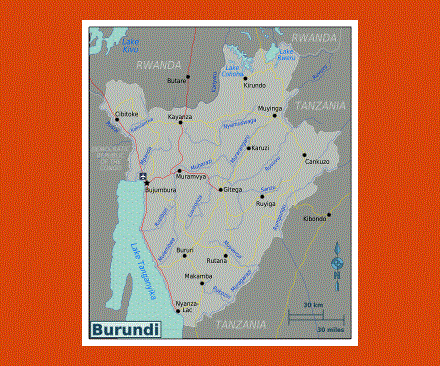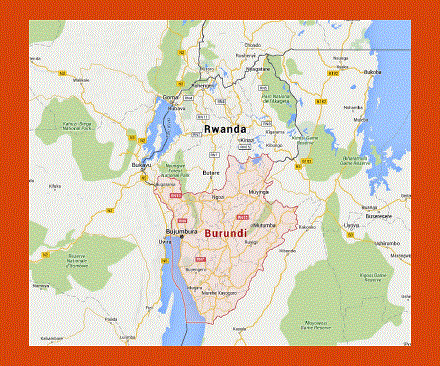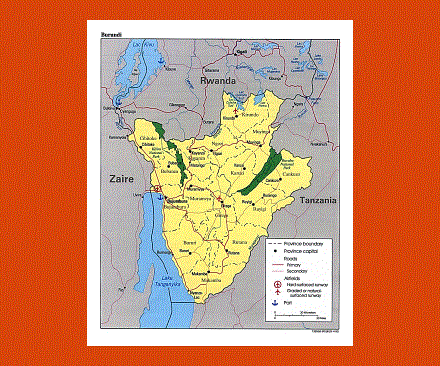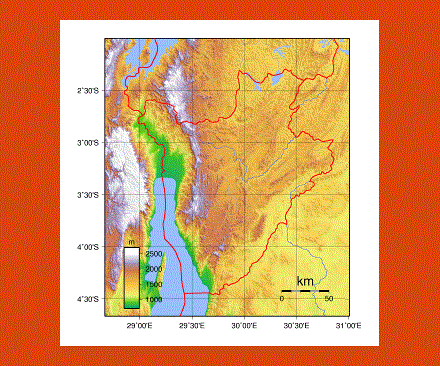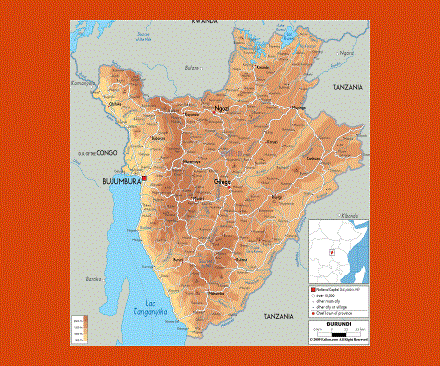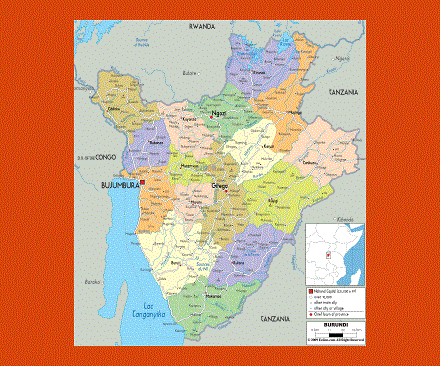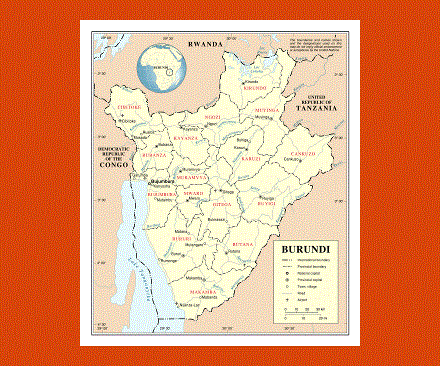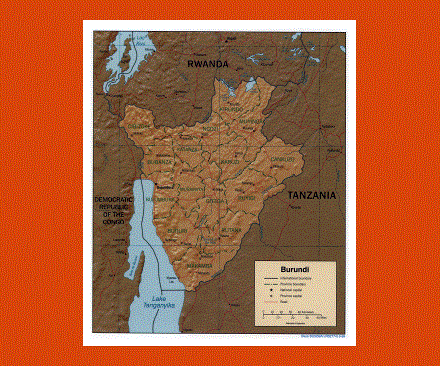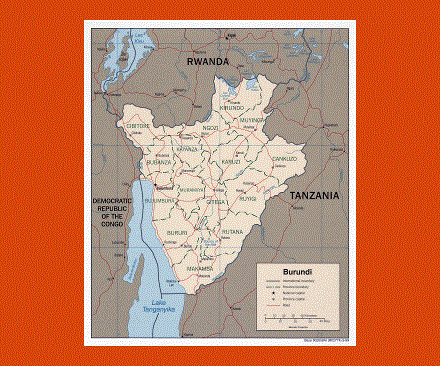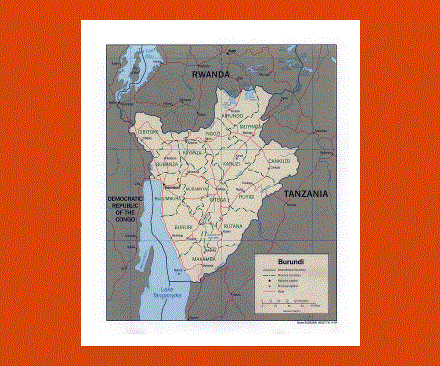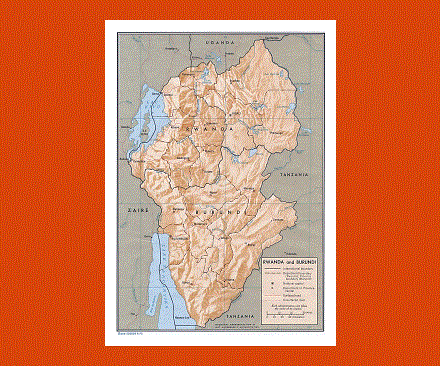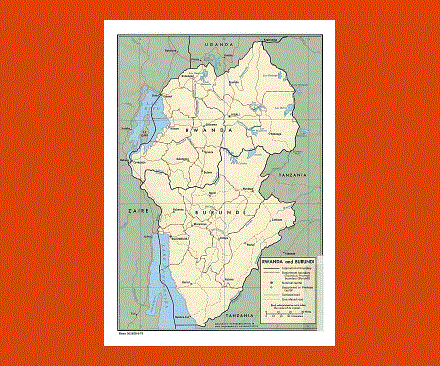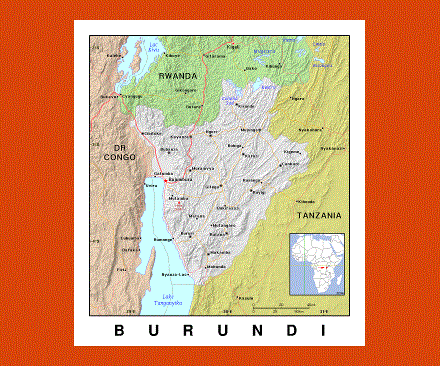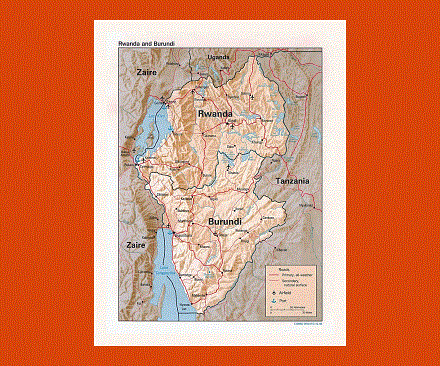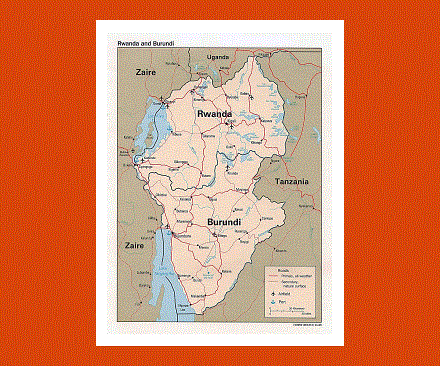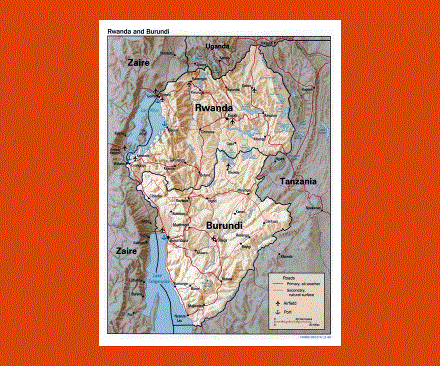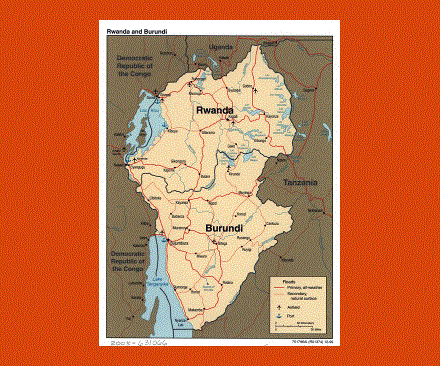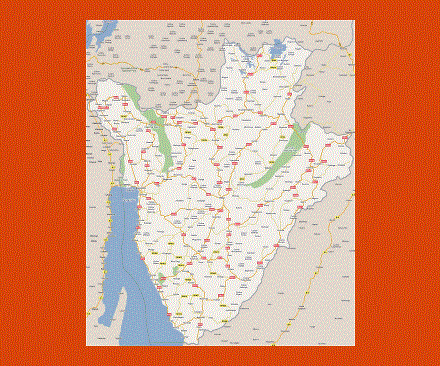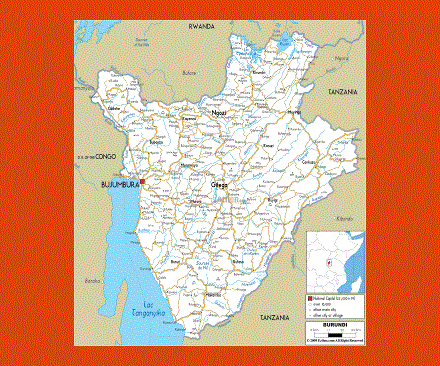Maps of Burundi
Situated in the very heart of Africa, Burundi is surrounded by Rwanda, Tanzania and the Democratic Republic of Congo. Bujumbura is its capital and the official languages spoken are French and Kirundi, a Bantu language. Swahili and English are also spoken.
Despite the recent years of violence, Burundi remains a country rich in magnificent landscapes that range from tropical plateaus to high mountaintops, with huge lakes and forests. In the south, the Nile tributary forms a landscape of valleys and hills strewn with banana groves, eucalyptus trees, savannah grassland and pastures, while on the mountainside coffe and tea plantation flourish.
The capital is a port-city once colonised by the Germans, where one can admire some fine examples of 19th century architecture as well as visit quite a few museums where artefacts of leather, ceramics, ivory and wood-carvings by the Burundian culture can be viewed.
Regions and sites of interest are Gitenga, the former royal city in the central plains with its impressive Chutes de Kagera waterfall and National Museum or the three lakes of Rwihinda, Rweru and Cohoha where bird-watching is popular, with over 20 different species.
The lake Tanganyika is also a great site for striking views and watersports.
The climate in Burundi is mild and pleasant with two main rainy seasons from February to May and September to November. The hottest region is near the Lake Tanganyika where it is often windy and in the Ruizizi River plain.
The people from Burundi are called Burundians.

